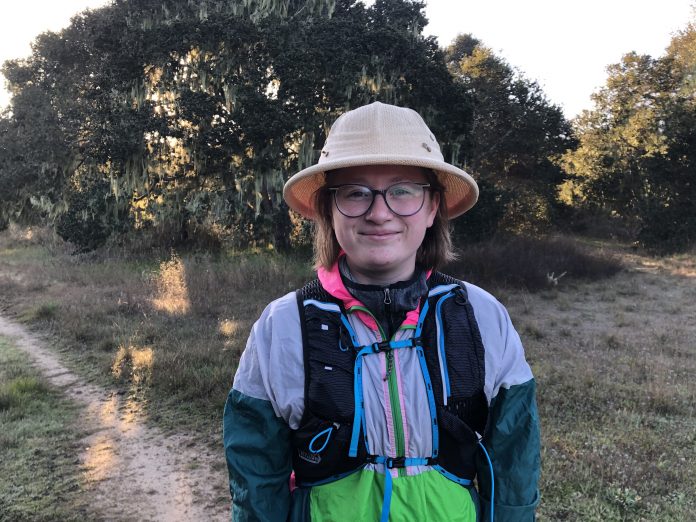California State University, Monterey Bay student, Emily Omiotek, started working at the REI in Marina in June of 2019 until the beginning of the COVID-19 pandemic, when she and her work team became furloughed.
Although Omiotek temporarily cannot go to work, she positively described her experience of working with REI through these unfortunate times and said the pandemic taught her overall that “we are obviously way more capable of working remotely than we ever believed.”
“Before COVID-19, things were business as usual. Never really a bad day at work at REI,” Omiotek said. “I really do love it there. My coworkers are amazing (most of which are my closest friends), and the people that shop there are amazing, too. Employees and customers share one commonality that unites all REI patrons: a love for the outdoors.”
“[I] knew REI would be taking action about COVID-19 soon when they canceled their Experiential Training Event, which is when select employees from a specific department get to travel to a different setting to learn about gear via demos, presentations, and hand-on experience from different big name vendors like Osprey [and] Big Agnes,” Omiotek said.
“When that was canceled, COVID-19 efforts began to ramp up,” Omiotek said. “Frontline employees were asked to clean/disinfect the registers and pin pads every couple hours. All employees were asked to just clean in their spare time, at least once every couple hours.”
Besides the increased rate of cleaning done by employees, some REI customers began to purchase many uncommon items from the store. “Customers that came in bought outrageous amounts of apocalypse gear, [such as] dehydrated meals, backpacking stoves or solar chargers,” Omiotek said. “Before shutting down, we were almost completely out of dehydrated meals.”
As for customer interactions, Omiotek said, “REI didn’t get much of an outrageous surge of people like Costco and the grocery stores did,” but she did have an odd conversation with someone she was helping at work.
“I remember one customer who purchased a hoard of survival gear and dehydrated goods, who later explained that he was going to go out into the woods by himself until the virus blew over,” Omiotek said. “Being polite, and having a natural love for the many forests around us, I said, ‘If you don’t mind me asking, which forest are you planning on staying in?’ and he responded, ‘I do mind you asking, actually.’ Then he was gone. Very interesting.”
Omiotek felt that REI was very responsive in ensuring their workers’ safety. “They closed the store,” Omiotek said. “It doesn’t get much safer than that!”
REI also helped out their employees financially. “All employees received emergency pay for either their scheduled hours for the coming weeks or for their average weekly hours – whichever was more, that’s what they paid us,” Omiotek said. “So from March 15 until April 15, I was getting about the same pay as I would have if I was working. That was really special, and I greatly appreciate and commend REI management for letting that happen.”
Omiotek also had a few takeaways from her time of working during the outbreak of COVID-19. “Personally, while this pandemic has certainly thrown us all into a crappy part of history, it has also given us an absurd amount of time for us to focus our time and energy on ourselves,” Omiotek said. “We will never get an opportunity to have this much time devoted to trying new things. I am glad I’ve had this time to learn new things.”
She also feels “less distinguished jobs,” such as garbage, grocery store and sanitation workers, “are just as important as other, more notable jobs from failing miserably. They deserve just as much appreciation and praise as our doctors and nurses,” Omiotek said.
She called out to others working during the pandemic, saying, “Everyone that is contributing to COVID-19 efforts-by their own choice or not: thank you.”
Omiotek also realized how important it is to care for oneself through the midst of this unseemly time. “I think the biggest thing I’ve learned is the importance of being gentle with yourself,” Omiotek said. “It’s easy to judge yourself for staying in bed all day, or not being as productive as you should be. But the truth is, we’re in the middle of a crisis that will be in history textbooks within the next decade. We are all dealing with this, and we are not alone.”

